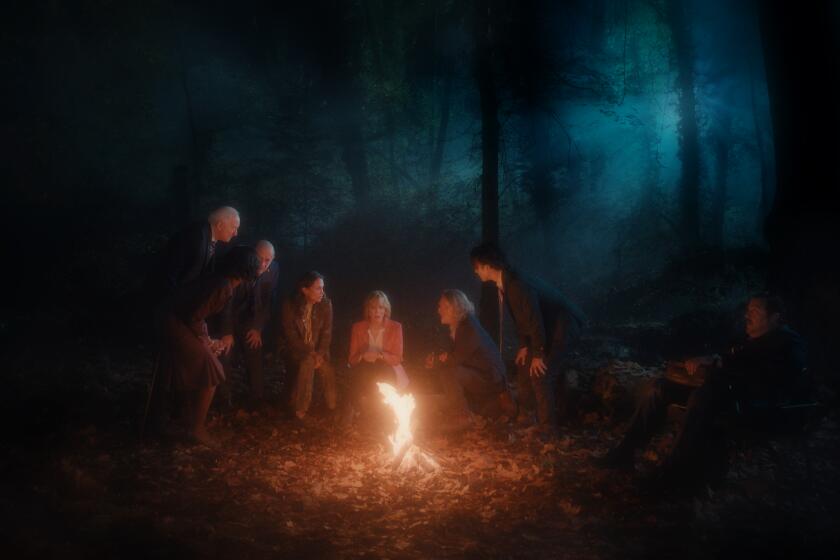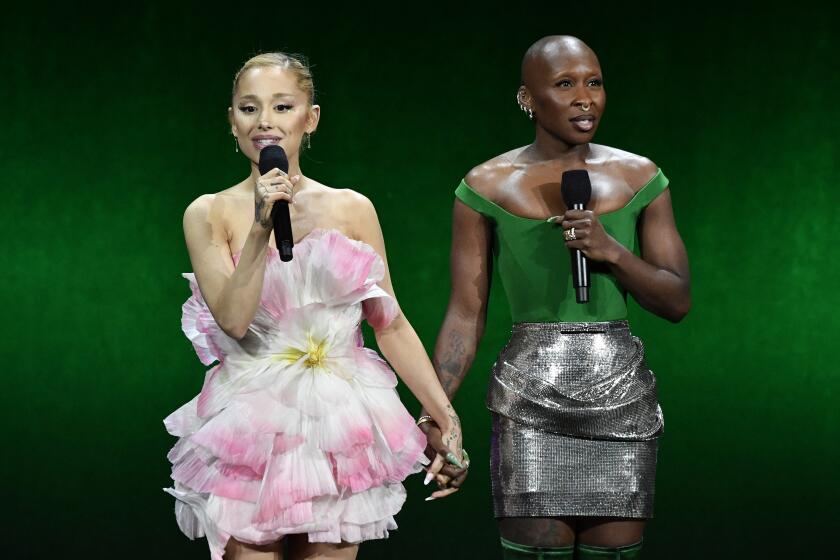The Aftermath : Industry Analysts See Viewership Declining in Wake of Settlement
With the probability that TV writers will go back to work Monday, “There’s going to be a lot of pent-up energy that’s going to explode in Hollywood,” a top industry analyst said Thursday.
But the explosion won’t be in the Nielsen ratings.
Instead, the likely effect of the 22-week Writers Guild of America strike will be to accelerate the decline of prime-time network viewing, at least this fall, said Larry Gerberandt, a senior vice president of Paul Kagan Associates, a TV consulting firm in Carmel, Calif.
The strike that delayed the new season, coupled with cable-TV programmers trying to exploit the situation, could mean there will be a drop in prime-time network viewing of two share points, or 10% of the audience, he said.
Advertisers and Wall Street analysts agreed.
“We don’t think it’s going to be dramatic in terms of 25% losses or anything like that,” said Richard Kostrya, executive vice president of the J. Walter Thompson. “But we would not be surprised if ABC and CBS did lose 10%” each in prime-time ratings this fall as a result of the strike.
Nevertheless, Kostrya said, he hasn’t seen advertisers hold back on buying network time. They “recognize that it will be less than desirable” because of smaller audiences, he said, “but it still represents the best option available.”
J. Kendrick Noble, an analyst at Paine Webber, said he doubted that the strike and the delayed season “makes a heck of a lot of difference to the networks--in the short term--this year in reported earnings.”
He said the impact of the strike during the coming season is hard to assess and, from a financial analyst’s viewpoint, “it’s more a question about next year, really.”
Ironically, so-called “up-front” buys of network commercial time for next season--such time is bought for 52 weeks with specific ratings figures guaranteed--went up this year, in large part because of the strike, another advertising executive said.
The reason, said Mel Conner of Saatchi & Saatchi DFS Compton, was the guarantees, which advertisers found appealing, considering uncertainty over when and if the strike would end.
“It’s just like going out to the track with no background on any of the horses. . . . You just have to bet on Lane 2,” Conner said. He said there are estimates the “up-front” buying for next season totals $3.2 billion, perhaps $200 million more than last year.
If the prediction of lower ratings comes true, the drop would be the second ratings whack for the networks in as many years.
Last season, when the new viewer-activated “people meter” rating system became the industry standard, prime-time network ratings dropped 9% overall.
Network researchers attributed part of that decline to the new system and the rest to inroads made by the growing cable industry, independent broadcast stations and increased usage of home video cassette recorders.
Like many industry observers, Gerberandt said NBC won’t be much affected this fall because high ratings are expected for its Sept. 17-Oct. 2 telecasts of the Summer Olympics and, starting Oct. 15, the World Series.
CBS, third in the prime-time ratings last year for the first time in TV history, will be most affected by the expected decline in audience “because it’s got the weakest schedule going in,” he said.
Gerberandt predicted that once production resumes, the networks’ prime-time schedules--excluding NBC’s Olympics and baseball telecasts--”probably are going to change every week until the end of the year. . . . All of them are going to be getting product coming off the assembly line at different times.
“For them, the most important thing is to have their best product in place through the November sweeps,” he said, referring to a key ratings period of intense audience measurements in all the nation’s TV markets.
More to Read
The biggest entertainment stories
Get our big stories about Hollywood, film, television, music, arts, culture and more right in your inbox as soon as they publish.
You may occasionally receive promotional content from the Los Angeles Times.










